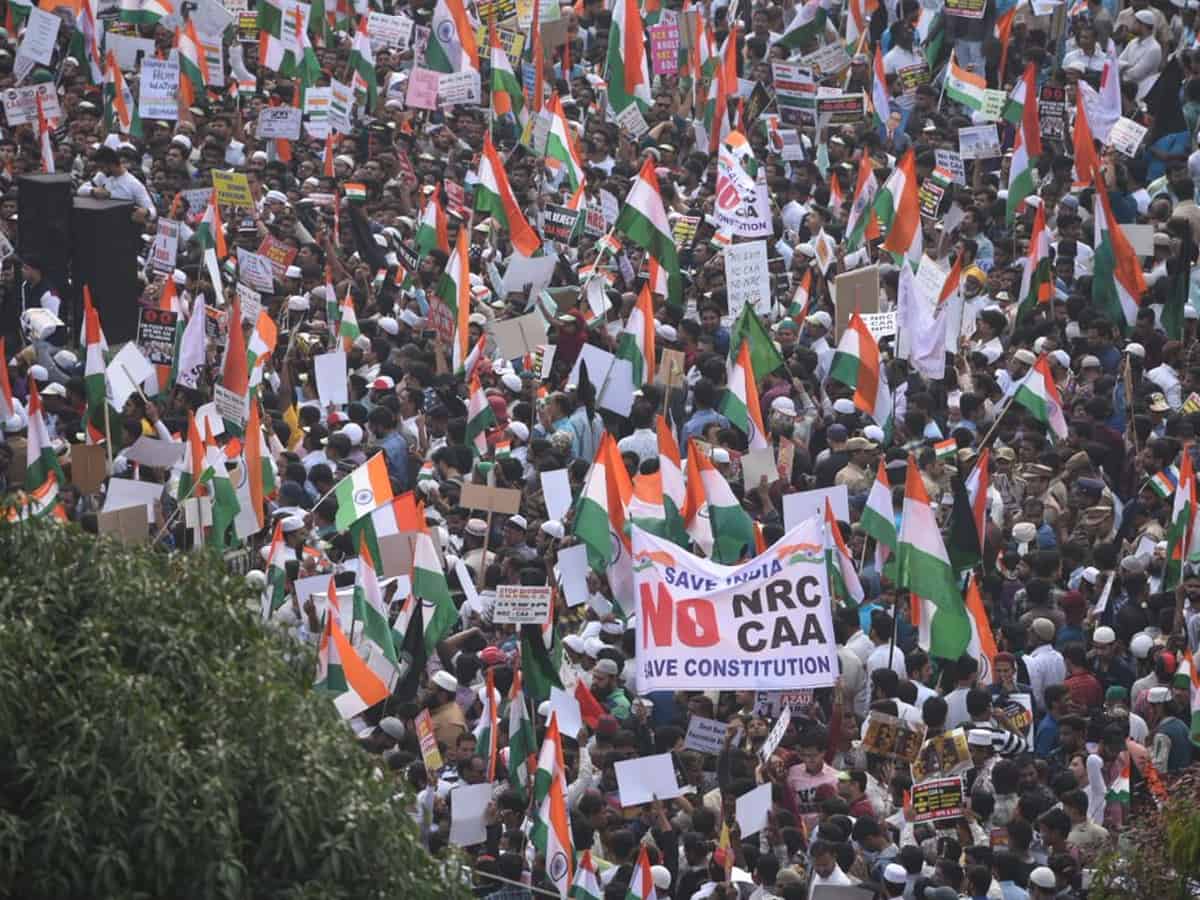
The Citizenship Amendment Act (CAA), which was passed by the Indian Parliament in 2019, is set to be implemented next month, NDTV reported, quoting sources.
Online registrations have begun with dry runs by the Union ministry of home affairs. CAA will grant Indian citizenship to refugees from neighbouring countries. The maximum number of applications received by the ministry was from Pakistan.
According to the Union home ministry’s annual report, from April 2021 to December 2021, as many as 1,414 non-Muslim minorities from Afghanistan, Bangladesh, and Pakistan were granted Indian citizenship under the Citizenship Act of 1955.
On February 10, the Union Home Minister Amit Shah asserted that the CAA will be notified and implemented before the upcoming Lok Sabha polls.
“CAA was a promise of the Congress government. When the country was divided and the minorities were persecuted in those countries, Congress assured the refugees that they were welcome in India and that they will be provided with Indian citizenship. Now they are backtracking,” Shah said.
He also said that the Muslim community was being provoked by certain anti-government elements and claimed that the Act would not snatch away their citizenships. “CAA is an Act to provide citizenship to refugees who were persecuted in Bangladesh and Pakistan,” he said.
District authorities have been bestowed the power to grant long-term visas, laying the groundwork for the CAA. Over the past two years, several district magistrates and home secretaries across nine states have been authorised to grant Indian citizenship to Hindus, Sikhs, Buddhists, Jains, Parsis, and Christians from Afghanistan, Bangladesh, and Pakistan.
Interestingly, there is no mention of Muslims in the Citizenship Amendment Act. This aspect of the Act triggered massive protests across India in 2019, criticising the BJP government for making religion a factor for granting citizenship.
Critics called out the Modi government’s “step-motherly treatment towards the Muslim community” and undermining the secular principles of the Indian Constitution.
